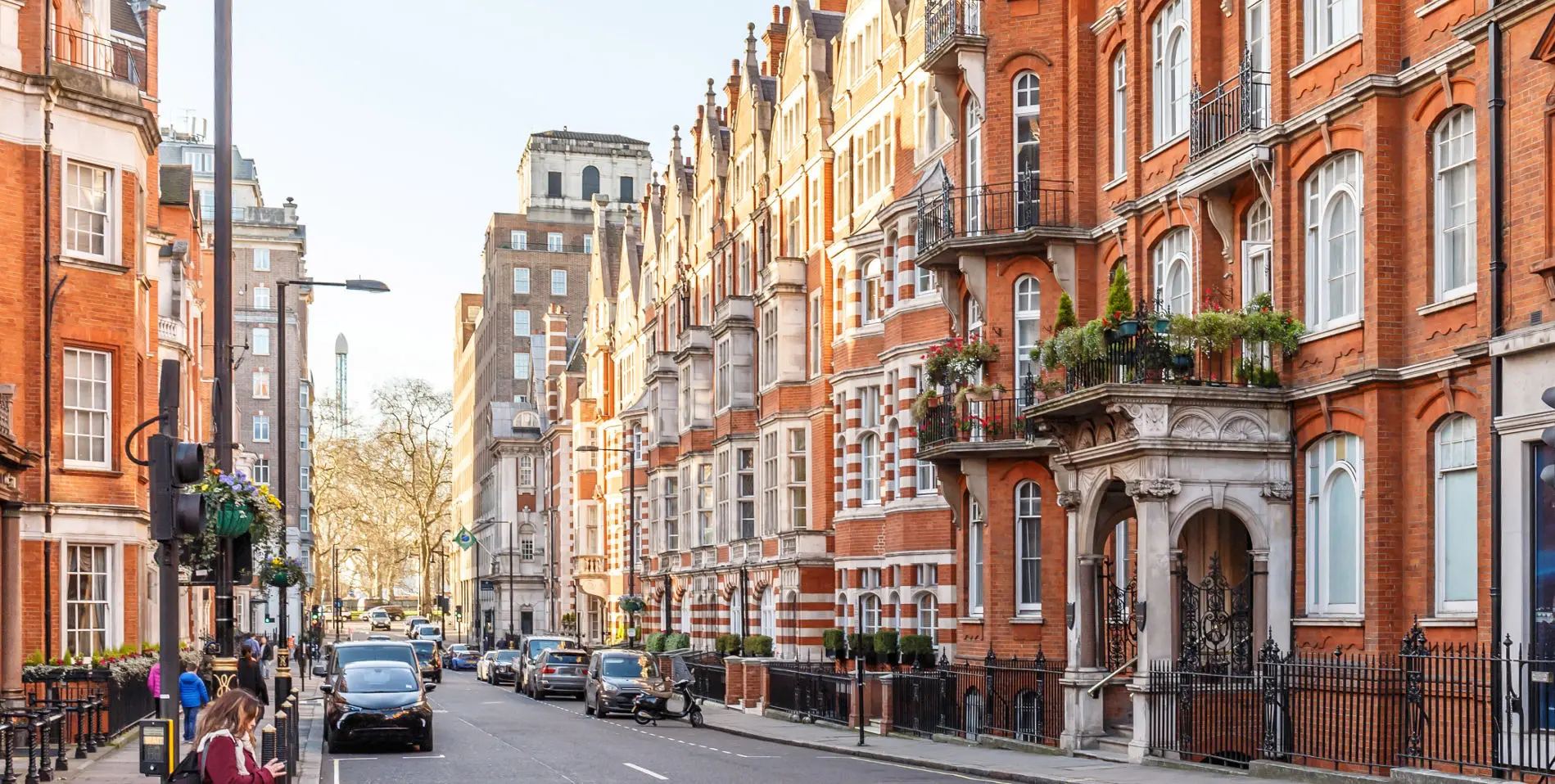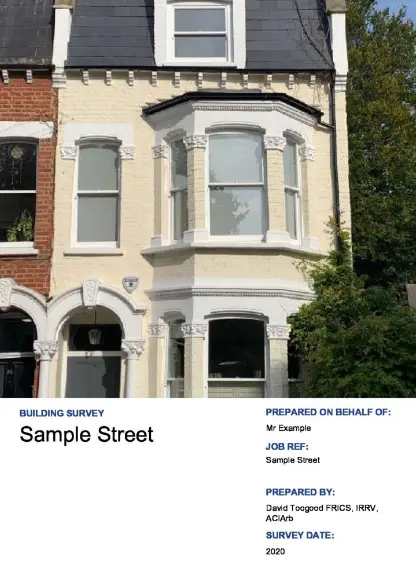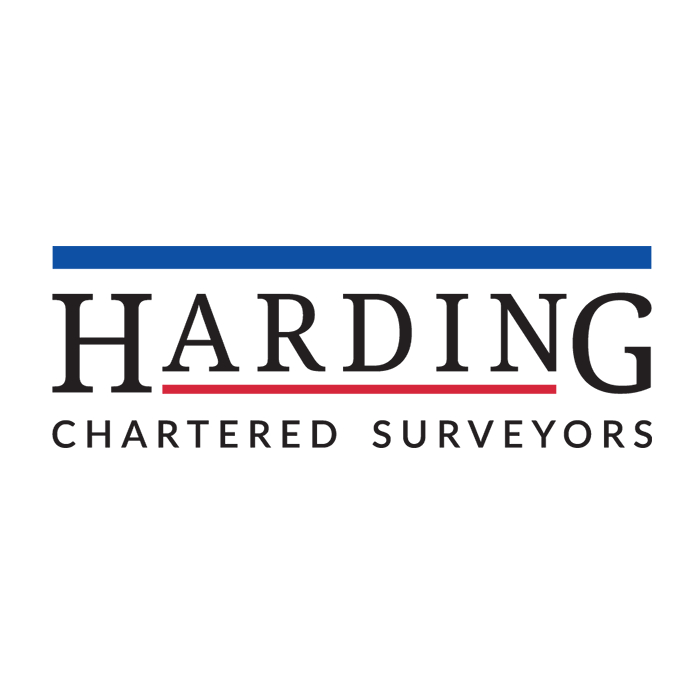Full Structural Survey | London & South East
Do I need a Structural Survey?
When buying a property, it's crucial to assess its condition thoroughly. This is where a Chartered Surveyor, accredited by the Royal Institution of Chartered Surveyors (RICS), becomes invaluable. They can conduct a detailed Building Survey, providing a comprehensive report on defects, structural issues, and overall property condition. Confusingly, what was once known as a Full Structural Survey is now referred to as a Level 3 Building Survey by the RICS. This article will clarify the differences between a Building Survey and a Structural Survey – the latter involving a Structural Engineer for an in-depth analysis of specific structural problems. It is essential to understand the type of survey needed, whether it's a Structural Survey for diagnosing specific issues with a property's structure, a Full Building Survey for a thorough checkup (especially for older properties), or a more general Homebuyer Report. Each type of property demands a specific approach, and the proper survey report can guide repairs, ensuring the homebuyer is fully informed. The choice of survey hinges on the property's age, condition, and specific concerns, all of which a Chartered Surveyor can help navigate.
Full Structural Survey Quote

Full Structural Survey Sample
For a Full Structural Survey Sample, please click here or on the image below.
Which Property Survey should I get?
Given that each survey differs in price and purpose – and London property is a considerable investment – spending your money wisely on the right report survey level for your needs is essential. Here are some tips on choosing the proper survey for your situation:
Structural Surveys
In the modern sense, a structural survey is typically a specialised survey conducted by a structural engineer focusing on particular aspects or issues with a property's structural integrity. Here are key aspects for various scenarios that a structural survey includes:
- Subsidence: Identifies signs of subsidence, provides causes, and suggests remedial actions.
- Altering or Removing Walls: Assesses the structural implications of altering or removing internal or external walls.
- Demolishing a Chimney Breast: Examines structural and safety considerations when removing a chimney.
- Extensions: Evaluate the impact of extensions on the existing structure, including foundations and load-bearing walls.
- Loft and Cellar Conversions: Focuses on the structural integrity and potential issues from converting lofts or cellars.
- Solar Panel Installations: Reviews roof structure and strength to support solar panels.
- Underpinning Floors: Assesses the need for underpinning, methods, and implications for the property's stability.
Each report is tailored to the specific structural and safety concerns associated with the respective alterations or issues, ensuring the property remains safe and structurally sound.
Building Surveys - RICS Level 3
An RICS Level 3 Building Survey, considered the most comprehensive survey offered by the Royal Institution of Chartered Surveyors (RICS), provides an in-depth analysis of a property's condition and is conducted by a Chartered Building Surveyor. Here are its key aspects:
- Thorough Inspection: A detailed physical inspection of the property covers all accessible parts.
- Extensive Coverage: The survey examines structural elements, such as foundations, roofing, walls, and floors, as well as non-structural components like windows and doors.
- Identification of Defects: It identifies various issues, from major structural faults to minor defects.
- Advice on Repairs: The survey provides expert recommendations on necessary repairs and maintenance.
- Potential Costs: It often includes estimating the costs for repairing identified defects.
- Long-Term Maintenance Guidance: Offers advice on maintaining the property over time.
- Customisable: This can be tailored to address the buyer's or homeowner's concerns.
- Ideal for Older Properties: Particularly recommended for older, larger, or non-standard properties.
- Invaluable for Renovation Projects: Essential for properties undergoing major renovations or alterations.
- Market Valuation Optional: This can include an estimated market value and insurance rebuild costs.
- Risk Assessment: Includes an assessment of potential risks and hazards associated with the property.
An RICS Level 3 Building Survey is critical for anyone needing a comprehensive understanding of a property's condition, especially when considering purchasing or renovating older or more complex buildings.
RICS HomeBuyer Report - RICS Level 2
The RICS Level 2 HomeBuyer Report is a popular option for those purchasing a home, providing a clear and concise evaluation of the property. Here are its key features:
- Moderate Depth Inspection: Conducts a general examination of the property's condition.
- Focus on Significant Issues: Highlights major problems that could affect the property's value.
- Clear Traffic Light Ratings: Uses an easy-to-understand system to indicate the condition of various parts of the property.
- Identification of Urgent Defects: Pinpoints serious issues requiring immediate attention.
- Maintenance Advice: Offers guidance on maintaining the property.
- Non-Invasive Survey: The inspection is visual and does not involve a detailed investigation.
- Suitable for Conventional Properties: Ideal for standard homes in reasonable condition.
- Market Valuation Optional: This can include an estimated market value and insurance rebuild costs.
- Accessible Areas Only: Focuses on parts of the property that are easily accessible.
- Risk Assessment: Identifies any risks to the building, people, or grounds.
The Level 2 HomeBuyer Report is a cost-effective choice for newer properties or those in visibly good condition, providing essential information without the depth of a Level 3 Building Survey.
Condition Report - RICS Level 1
The RICS Level 1 Condition Report is a basic yet essential survey for understanding a property's overall condition. Here are its key aspects:
- Overview of Condition: Offers a general overview of the property's condition.
- Identification of Major Issues: Focuses on significant and urgent defects.
- Simple Format: Presented in a clear and straightforward format.
- Traffic Light System: Utilizes a traffic light rating system to highlight areas of concern.
- Non-invasive Inspection: The survey is purely visual, examining accessible areas only.
- Ideal for Newer Properties: Best suited for newer homes or those in apparently good condition.
- No Advice on Repairs: Unlike more detailed surveys, it does not provide repair advice or cost estimates.
- Quick Assessment: Provides a fast way to identify any pressing issues.
- Risk Identification: Highlights any immediate risks to the property or its occupants.
The RICS Level 1 Condition Report is perfect for those requiring a basic understanding of a property's condition without needing in-depth analysis or repair advice.
Snagging Lists
Snagging Lists are essential tools in the new-build property purchasing process, providing a detailed check of a newly constructed home. Here are their key features:
- Detailed Inspection: Targets minor and cosmetic defects in new properties.
- Focus on Workmanship: Assesses the quality of construction and finish.
- New-Build Specific: Exclusively used for newly constructed homes.
- Rectification of Issues: Aids in getting defects corrected by the developer before completion.
- Comprehensive Coverage: Includes internal and external checks.
- Post-Construction Review: Conducted after construction, but ideally before purchase completion.
- Negotiating Tool: This can be used to negotiate repairs with the developer.
- Safety Checks: Ensures all elements meet safety and quality standards.
A Snagging List is invaluable for ensuring that a new-build home meets the expected standards and is free from defects before finalizing the purchase.
Need more advice on Structural Surveys?
Our team of skilled Chartered Surveyors and Engineers provides expert assistance in conducting Structural Surveys. Our approach is centred on offering honest and impartial advice, ensuring clients make informed decisions about their properties. Whether you have concerns about the structural integrity of a property or need a detailed analysis for renovations, our experienced surveyors are equipped to help. You can easily contact us for a consultation or to discuss specific requirements. For personalised advice from an industry expert, don't hesitate to contact Harding Chartered Surveyors at 020 3598 6730 or utilise our online chat service.

Difference between a Structural Survey and a Building Survey?
Understanding the distinction between a Structural Survey and a Building Survey is crucial for homeowners, buyers, and investors in the property market. While both surveys are essential tools in assessing the condition of a property, they serve different purposes and offer varying levels of detail.
- Focus: A Structural Survey primarily focuses on the structural integrity of the property. It's specifically concerned with the strength and stability of the building’s construction.
- Conducted by: A structural engineer often carries out This type of survey.
- Detail: A Structural Survey is very detailed and technical. It assesses the load-bearing parts of the property, like foundations, beams, and load-bearing walls.
- Recommended for: Older properties, buildings that have undergone significant alterations, properties with visible structural issues, or buildings planned for major renovations.
- Outcome: The report from a Structural Survey provides an in-depth analysis of the structural state of the building, identifying any potential risks or necessary repairs, particularly those that could affect the property's stability.
Building Survey:
- Also Known As Sometimes referred to as a Full Structural Survey, especially in older terminologies.
- Focus: A Building Survey comprehensively inspects the property's overall condition.
- Conducted by: This survey is typically performed by an RICS Chartered surveyor.
- Detail: It covers all accessible parts of the building, including the roof, walls, floors, windows, and doors, and even looks for issues like dampness and insulation problems. It’s less technical than a Structural Survey but more comprehensive regarding general property conditions.
- Recommended for: All types of properties but is particularly useful for older or uniquely designed homes, properties in disrepair, or those with planned major alterations.
- Outcome: The report provides a detailed account of the property's condition, highlighting any defects, repairs, or maintenance issues. It can also include advice on repairs and maintenance and, in some cases, might offer an estimate of the costs for necessary repairs.
There are two popular types of building surveys: the RICS level 3 Building Survey and the RICS Level 2 HomeBuyer Report. The RICS HomeBuyer Report Survey is the least expensive and most basic of the two options.
How much does a Full Structural Survey Cost in London?
Investing in a RICS HomeBuyer Report Survey (Level 2), starting at £600, or a more detailed Full Building Survey (Level 3), beginning at £750, can be financially prudent when assessing a home's overall condition. The cost of these surveys, which varies depending on the size and value of the property, is often justified by their comprehensive insight. They offer a clear picture of the property's state and empower potential buyers to negotiate a better purchase price by leveraging information about any identified defects. This strategic use of building surveys can lead to significant savings in the property acquisition process.
Creating a structural engineering report for a small property should take just a few hours to assess and complete and should cost upwards of £950, whereas if it were to view a single or two minor defects, then it could be around £600. Other engineers may offer a fixed price to work on your project. Depending on your project and size, this can range from £600 to £2000. Occasionally, structural engineers may charge an additional fee for services such as a walk-around survey, generic structural report or inspection report.

